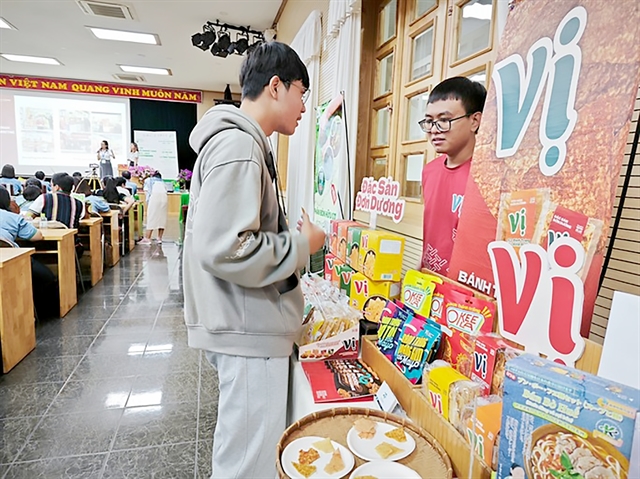 Economy
Economy

 |
| Many young people around Việt Nam have created start-ups by harnessing local natural resources. — Photo nld.com.vn |
HCM CITY — More and more start-ups by young people in rural areas are capitalising on the rich and diverse local resources.
Đặng Dương Minh Hoàng, director of the Bình Phước Province Digital Agricultural Service Cooperative, said they are developing rapidly thanks to a trend of people leaving cities for the countryside and improving traffic connectivity and technologies.
"Many young people leave the city with some capital, land from their families and connections to start a business.
“This generation will create a change in the countryside because they create new products from these indigenous resources and have an understanding of market demand in the cities.”
Provinces have many training programmes to promote rural start-up eco-systems, start-up communities are being created and they shared experiences to develop together, he said.
Trần Đăng Đạt, co-founder of Đạt Butter Co. Ltd. in HCM City, said starting a business from locally available resources makes sense for young people with limited resources.
Young people have filled in small market gaps, telling interesting stories with their hometown products, which helps them attract the community and gain a foothold in the market, he said.
However, while there are many local start-up support programmes, they are not carried out synchronously, leading to overlaps and limiting their effectiveness, he said.
Many provinces and cities have similar raw material areas and specialties, making it difficult for start-ups to communicate their unique advantages.
Đạt said: "Having started a business ourselves, we have learned that we need to work together to develop.
“Currently, we have gathered 30 start-ups to share market information, share raw material areas, and create product combos to offer to retail systems to increase the likelihood of success."
Lê Minh Cương, director of Spicy Country Co. Ltd., said trade promotion activities would be more effective when done in groups.
Customers can be introduced to a wider variety of products, and businesses can share exhibition stall renting costs, he said.
"Start-up businesses using indigenous resources are eager to connect with retail systems as it helps businesses grow quickly."
Vũ Kim Anh, deputy director of the Business Studies and Assistance Center, said Việt Nam's indigenous resources are diverse and an advantage for business projects.
Many projects harnessing indigenous resources also pay attention to protecting them, she said.
"Many projects have good products and beautiful packaging, but trade promotion is still weak. This is an important step that needs to be paid attention to because new markets create conditions for projects to develop and reinvest," Anh said.
Mai Hữu Tài, a member of the executive board of the Southern Start-up Support Advisory Council, said these group projects have positive social impacts such as creating jobs, protecting the environment and preserving culture.
They offer diverse products and services, including foods, herbal medicines, handicrafts, and tourism, many of which have achieved One Commune One Product (OCOP) status, especially those using online platforms.
"It is necessary to build a strong community network, create opportunities to share knowledge and experience, and have cooperation opportunities in the field of indigenous resource exploitation.
“It is also important to organise exhibitions and conferences to promote products and services, including agricultural and rural tourism, to create opportunities for businesses to meet customers and connect with potential partners."
Working closely with the local community is also important for fully making use of natural resources and protecting competitive advantage, he said. — VNS




